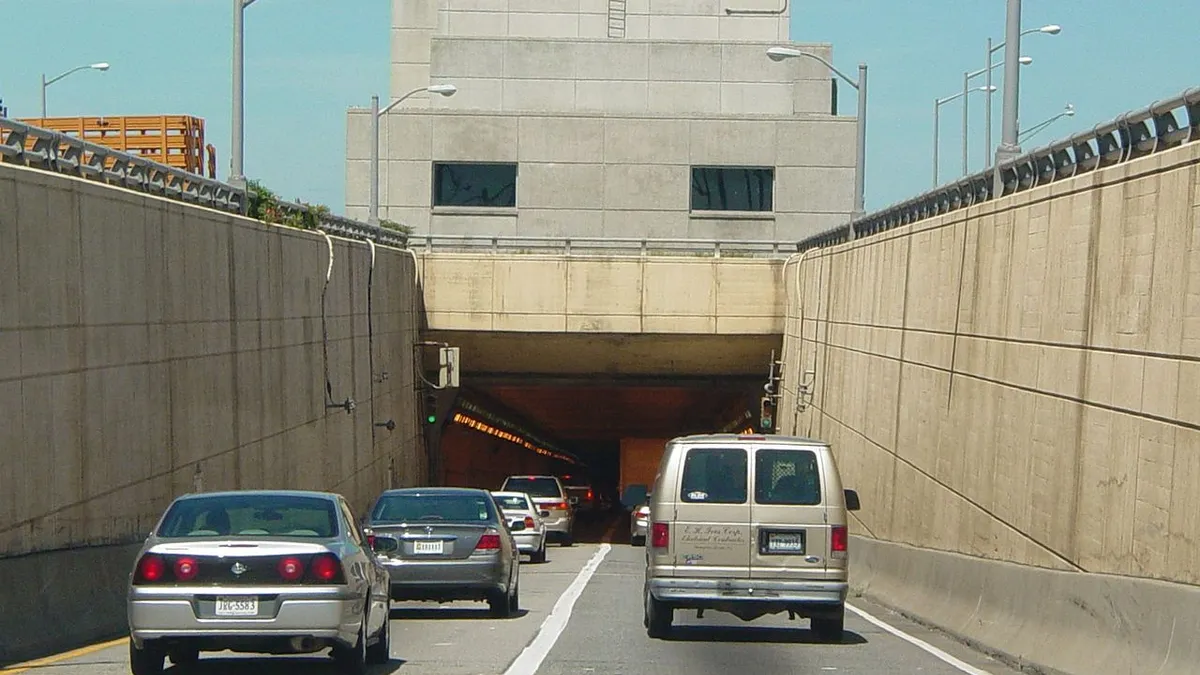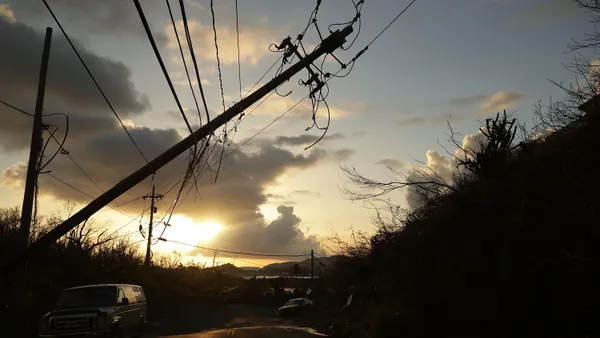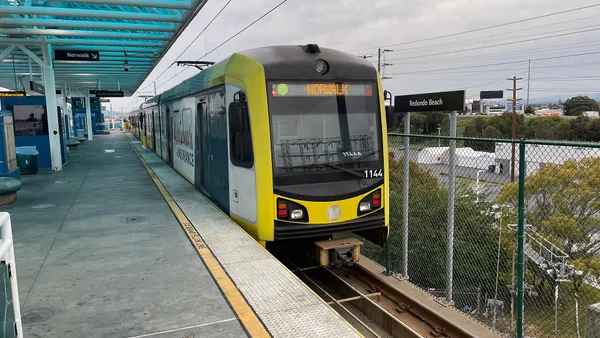Dive Brief:
- Hampton Road Connector Partners (HRCP), the design-build consortium constructing the $3.9 billion Hampton Roads Bridge-Tunnel (HRBT) expansion project as part of a public-private partnership (P3) with the Virginia DOT, is actively encouraging small, disadvantaged and minority businesses to participate. HRCP's goals for the project are 12% DBE (disadvantaged business enterprise) contractors and 20% SWaM (small, women-and minority-owned) contractors.
- As of September 2019, HRCP said it had project agreements with 36 DBE- and SWaM-certified contractors but told The Virginian-Pilot that it now has executed 60 such contracts for scopes of work including environmental services, landscape architects, engineering, design and electrical. HRCP said it will break down bid packages so that smaller businesses can participate.
- HRCP has held hiring fairs, posted advertisements and partnered with local business organizations, including Black Brand, the Hampton Roads black chamber of commerce, in order to get the word out about bidding opportunities for DBA and SWaM contractors. Businesses that are interested in submitting bids for the project — which should begin in late 2020 and wrap up in November 2025 — can register at the HRCP website.
Dive Insight:
Virginia Gov. Ralph Northam announced last February that HRCP had won the $3.3 billion design-build contract for the Hampton Roads bridge and tunnel. Northam said it is the largest project in VDOT history. HCRP includes construction industry heavy hitters Dragados USA, Flatiron Construction Corp., HDR Inc., The Mott MacDonald Group and two subsidiaries of French company Vinci — Vinci Construction Grands Projets and Dodin Campenon Bernard.
HRCP will bore two new tunnels, both with two lanes, west of the existing eastbound tunnel. When the project is complete, the two existing tunnels will both handle westbound traffic. The team will also widen four-lane sections of Interstate 64 at both ends of the project in the Virginia cities of Hampton (1 mile) and Norfolk (4 miles), as well as add two shoulder lanes to be used during times of peak traffic. Two lanes in each direction will be free general-purpose lanes, while one lane and one shoulder in each direction will be high-occupancy toll lanes.
The corridor sees more than 100,000 vehicles per day and, according to the VDOT, is one of the most congested in the region.
The bridge portion of the project will include a 9,000-foot crossing and a 5,000-foot crossing, as well as the repair or replacement of more than 24 other bridge structures.
HRCP will use a tunnel boring machine on the project, and its 8,000-foot path will go 50 feet deeper than the existing tunnels. The tunnel openings, at 45 feet, will be the second-largest in North America, and the project itself will be the fourth bored roadway tunnel in the U.S.
Dragados also used its tunneling expertise on the $2 billion tunneling piece of the $3.3 billion Alaskan Way Viaduct Replacement Project in Seattle and was also tapped for the $11 billion East Side Access project in New York City and the $756 million Chesapeake Bay Bridge-Tunnel in Virginia.













